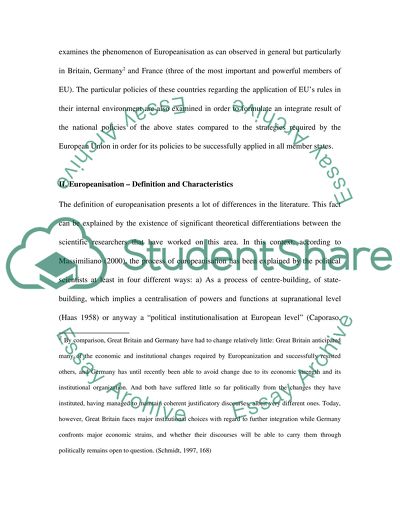Cite this document
(How Does the Concept of Europeanisation Seek to Explain Policy Adaptat Case Study, n.d.)
How Does the Concept of Europeanisation Seek to Explain Policy Adaptat Case Study. Retrieved from https://studentshare.org/politics/1536314-hoe-does-the-concept-of-europeanisation-seek-to-explain-policy-adaptation-in-eu-member-staes
How Does the Concept of Europeanisation Seek to Explain Policy Adaptat Case Study. Retrieved from https://studentshare.org/politics/1536314-hoe-does-the-concept-of-europeanisation-seek-to-explain-policy-adaptation-in-eu-member-staes
(How Does the Concept of Europeanisation Seek to Explain Policy Adaptat Case Study)
How Does the Concept of Europeanisation Seek to Explain Policy Adaptat Case Study. https://studentshare.org/politics/1536314-hoe-does-the-concept-of-europeanisation-seek-to-explain-policy-adaptation-in-eu-member-staes.
How Does the Concept of Europeanisation Seek to Explain Policy Adaptat Case Study. https://studentshare.org/politics/1536314-hoe-does-the-concept-of-europeanisation-seek-to-explain-policy-adaptation-in-eu-member-staes.
“How Does the Concept of Europeanisation Seek to Explain Policy Adaptat Case Study”. https://studentshare.org/politics/1536314-hoe-does-the-concept-of-europeanisation-seek-to-explain-policy-adaptation-in-eu-member-staes.


